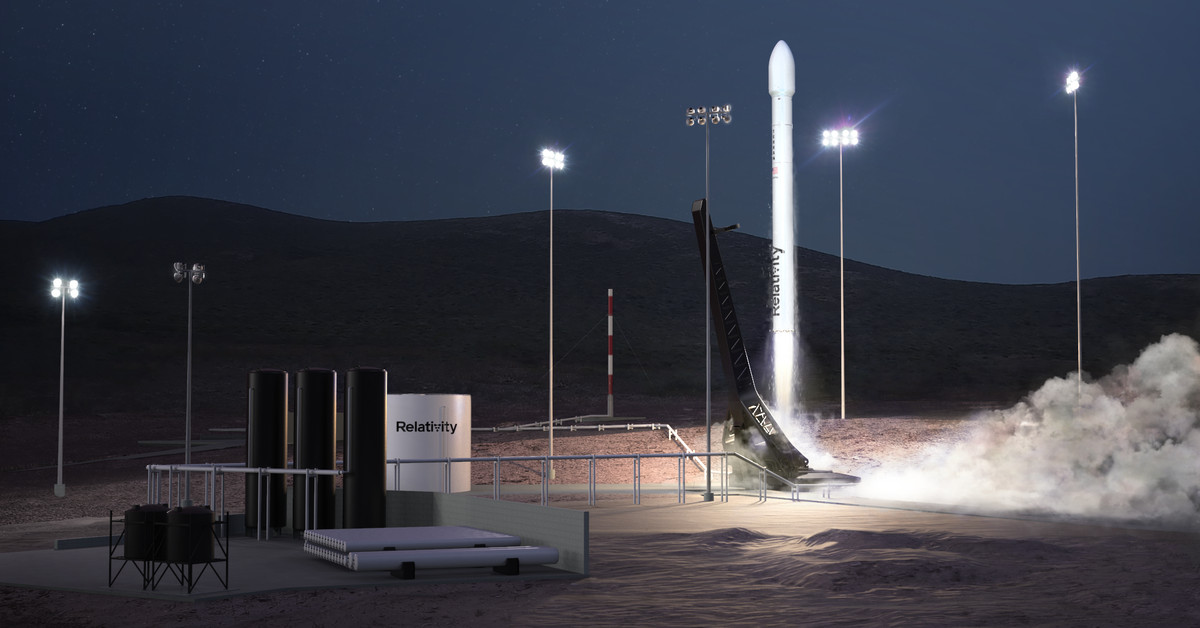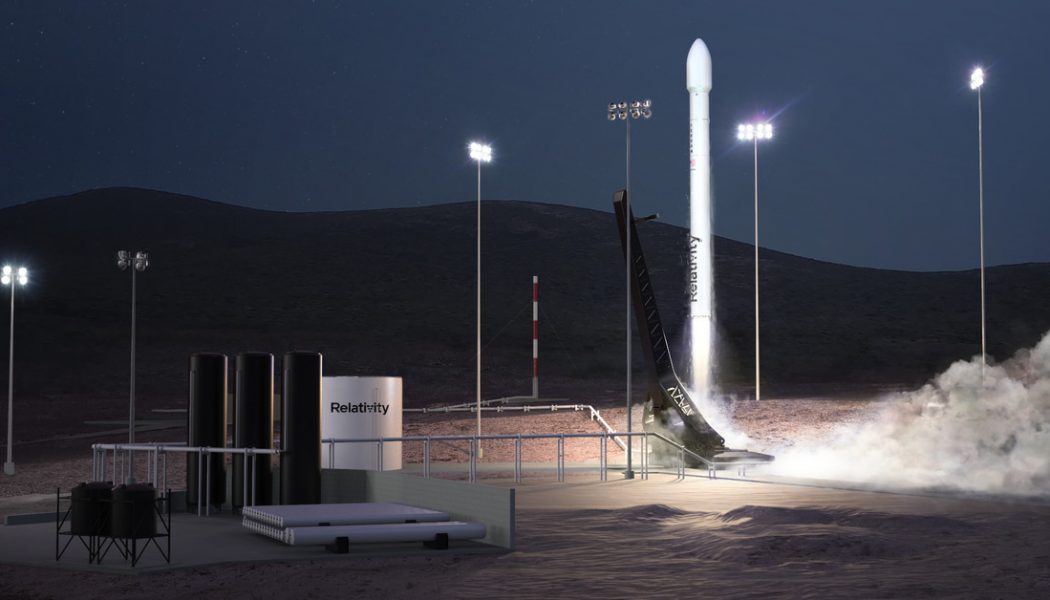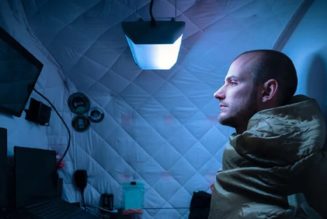
Rocket startup Relativity Space is expanding its launch sites from one to two, with a new agreement to fly its future rocket out of Vandenberg Air Force Base in Southern California. The deal means Relativity, which already has a lease for a launch site in Cape Canaveral, Florida, will be able to fly from either the East or West Coast of the United States when its rocket is ready.
Based out of Los Angeles, Relativity Space is an ambitious rocket startup aimed at creating the first fully 3D-printed rocket. The company, started by engineers from SpaceX and Blue Origin, is currently developing its first rocket called the Terran 1. The goal is for every part of Terran 1 — including its engines, fuselage, and propellant tanks — to be 3D-printed in order to minimize the amount of workforce needed to manufacture the rocket and bring down costs. Relativity created its own 3D printer called Stargate to get the job done, and the company recently moved into a new 120,000-square-foot facility in Long Beach, California, to further develop the rocket.
In January of last year, Relativity announced it had signed an agreement to launch out of Cape Canaveral Air Force Station from a site called LC-16. The company plans to ramp up construction on the site to prepare for the inaugural flight of the Terran 1 currently scheduled for the end of 2021. In the meantime, Relativity has signed a “Right Of Entry Agreement” at Vandenberg Air Force Base. The company is eyeing moving into a site called Building 330 and taking over the land surrounding it.
“We have a site identified; we’ve gone through a program review; we’ve done the initial paperwork for actually getting the first step towards a site awarded,” Tim Ellis, CEO of Relativity Space, tells The Verge. “It means that we’re actually launching from this facility.” He says that the new location will allow the company to launch to orbits that pass north to south and over poles, which its rockets could not reach from launching eastward from the Cape.
As the company begins the process of moving into its new launch site, customers are taking notice. Relativity is also announcing that satellite operator Iridium will launch six satellites on the Terran 1. Iridium finished launching its new constellation of satellites in early 2019, putting up 66 operational satellites and nine in-orbit spares on SpaceX’s Falcon 9 rocket. However, the company manufactured six spare satellites that have remained in storage on the ground, and Iridium wants the option to launch those in the future. Relativity’s Terran 1 will loft one Iridium satellite at a time, with all of the launches taking place out of Vandenberg.
Ellis says that the new launch site, combined with Relativity’s new 3D-printing technique, helped secure the deal. “That’s why Iridium chose us,” he says. “It was just confidence in our ability to get a successful launch off, and then also how disruptive the payload performance capability was and price that we’re able to provide because of that 3D-printing tech.” Relativity has said that one flight of its Terran 1, which can carry roughly 2,755 pounds (1,250 kilograms) to low Earth orbit, will start at $10 million.
There’s still a long way to go to prove that Relativity’s rocket-building technique will work and be cost-effective. Ellis expects to start piecing together the rocket and doing testing on it toward the end of this year. But the company has made significant milestones in its short five-year lifetime. Engineers at the company have tested their engines at multiple test sites out of NASA’s Stennis Space Center in Mississippi. Late last year, the company announced it had raised a total of $185 million, which will be enough to fund its first commercial missions. Relativity also continues to bring on well-known talent within the space industry. In May, the company hired Zachary Dunn from SpaceX who had worked for the Elon Musk-led company for more than a decade and was the senior vice president of production and launch. And despite the economic downturn due to COVID-19, Relativity is ramping up its hiring.
The addition of a second launch site is just another big milestone, one Ellis hopes will cement the company as a major player. “I mean when you look at how many companies are actually bicoastal and have major launch facilities, it’s a huge sign of confidence in Relativity’s approach,” he says.










